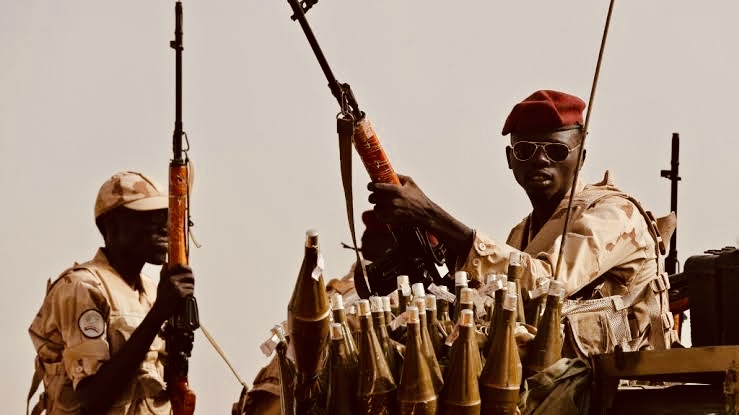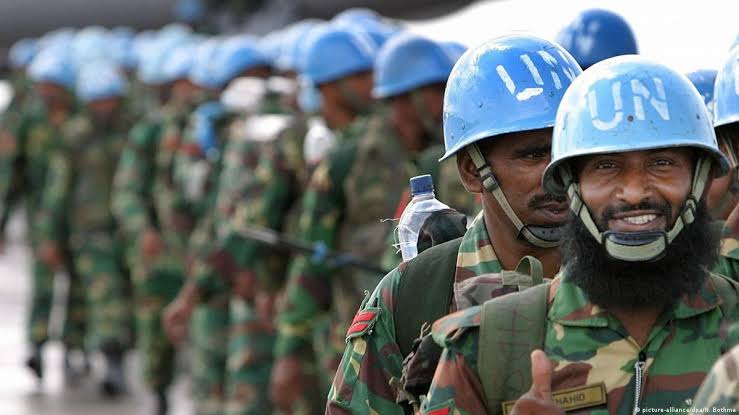
Faith Nyasuguta
South Africa’s President Cyril Ramaphosa (pictured) has officially been reelected for a second term by lawmakers, following a historic coalition agreement between his African National Congress (ANC) and the Democratic Alliance (DA). This collaboration marks a significant shift in the nation’s politics as these two rival parties set aside their differences to form a unity government.
Ramaphosa secured his victory by winning 283 votes against 44 votes for Julius Malema, the leader of the far-left Economic Freedom Fighters (EFF). The pro-business DA announced that it would support Ramaphosa as part of their agreement with the ANC. This deal comes amid criticisms that the DA, often seen as favoring the interests of South Africa’s white minority, is compromising its principles; however, the party denies these allegations.
The ANC, which has governed South Africa since the end of apartheid in 1994, lost its parliamentary majority in the May 29 elections. Their vote share plummeted from 57.5% in 2019 to 40.2%, as many supporters shifted to breakaway parties due to chronic unemployment and deteriorating public services. The DA garnered nearly 22% of the vote and agreed to support Ramaphosa’s reelection.

In return, the DA’s MPs will vote for an ANC speaker of parliament while receiving the position of deputy speaker. John Steenhuisen, the DA leader, emphasized that the people’s votes indicated a desire for collaborative governance rather than domination by a single party.
“Today, the DA becomes a party of national government,” Steenhuisen announced after legislators were sworn in at a convention center in Cape Town, with parliament buildings still under renovation from a 2022 fire. He stressed the importance of collaboration and problem-solving over finger-pointing in politics.
The ANC-DA coalition is favored by large businesses and international investors, who see Ramaphosa as a proponent of policies like private sector involvement in renewable energy, which has helped reduce power cuts. Negotiations on policies and cabinet positions are set to continue beyond the initial two-week period mandated by the constitution for the election of a president.
A “statement of intent” signed by both parties includes a commitment to a merit-based, nonpartisan, and professional civil service, addressing the DA’s long-standing criticism of ANC’s “cadre deployment,” which they argue fosters corruption.
Two smaller parties, the Inkatha Freedom Party (IFP) and the Patriotic Alliance (PA), have also joined the coalition. The IFP, with 3.8% of the vote, helps counteract criticism of the ANC’s partnership with the DA. The PA, led by Gayton McKenzie, received 2% of the vote and has strong support in South Africa’s Coloured communities.
The ANC’s significant loss in vote share is largely attributed to the new uMkhonto weSizwe (MK) party, which secured 14.6% of the vote. Formed just six months ago by former President Jacob Zuma, the MK party boycotted the opening of parliament after their legal challenge to the election results was rejected by the top court. They have vowed not to cooperate with the ANC under Ramaphosa’s leadership.

Meanwhile, the EFF, known for their distinctive red overalls, hard hats, and rubber boots, also rejected Ramaphosa’s call for a Government of National Unity (GNU). EFF leader Julius Malema, who founded the party after being expelled from the ANC, dismissed the idea of joining a government with the DA, labeling them as “neo-colonial” and “our enemy.” Some within the ANC had favored a coalition with the EFF and MK, seeing them as political and ideological allies, but Ramaphosa’s approach aims to position the ANC as an inclusive party.
Analysts suggest that Ramaphosa’s call for a GNU aligns with his cautious political style, portraying the ANC as willing to collaborate while leaving the onus on other parties to exclude themselves from the process. This new coalition government marks a turning point in South Africa’s politics, emphasizing unity and cooperative governance in response to the electorate’s call for change.
RELATED:




